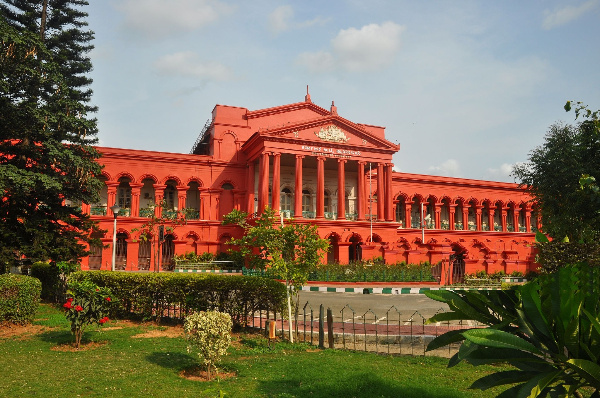The Karnataka High Court stated that simply issuing a notice does not start arbitration proceedings; it is just a step towards beginning them.

The Karnataka High Court clarified that simply issuing a notice does not mean that proceedings have started; it is merely a step towards beginning the process. This clarification came during a Miscellaneous First Appeal that challenged a Trial Court’s decision to dismiss applications under Order 39 Rules 1 and 2, along with Section 151 of the Civil Procedure Code (CPC) and Section 9 of the Arbitration and Conciliation Act, 1996 (A&C Act), as well as Rule 9 of the Arbitration (Proceedings Before the Courts) Rules, 2001. Justice H.P. Sandesh noted that since the arbitration proceedings were not initiated within the required time frame of 90 days, the notice cannot be seen as the start of arbitration proceedings.
Senior Advocate Arun Kumar represented the Appellant, while Advocate Sheethal Soni represented the Respondents. An application was submitted requesting a temporary injunction to prevent the Respondent, along with their representatives, successors, and anyone associated with them, from disrupting the operations of the hotel on the scheduled property until the case is resolved. A Franchise Agreement was made between the parties for managing the hotel on the scheduled property. The Petitioner, recognized as one of India’s top and fastest-growing hotel chains, entered into this agreement to operate the hotel and leverage the goodwill of the well-known brands “Royal Orchid,” “Regenta,” and “Regenta Central,” among others.
After the agreement was signed, the hotel management was running smoothly. However, some partners began to interfere with the hotel’s operations. One partner was yelling at the reception staff and threatening to cancel bookings and seize records unless he received large payments beyond what was agreed in the contract. This behavior put the hotel’s operations and the guests’ experience at serious risk. As a result, the Petitioners felt it necessary to seek legal protection and requested the Court to issue appropriate orders against the Respondents. Consequently, applications were filed for a temporary injunction.
The High Court, considering the details of the case, stated, “In the earlier judgment mentioned by respondent No.2 in M/S. PATON CONSTRUCTIONS PRIVATE LTD. v. M/S. LORVEN PROJECTS LTD., reported in AIR 2017 KAR 135, Rule 9(4) was applied. It concluded that if an application for an interim measure is made before starting arbitration, and if the arbitration is not initiated within three months from the application date under Section 9 of the Act, any interim order will automatically be canceled without a specific court order.”
The Court observed that, given this situation, the argument from the Appellant’s counsel that the notice was timely cannot be accepted. It emphasized that arbitration is considered to start when the Respondent receives a request for arbitration. However, if the parties have agreed to a different event for starting arbitration, that agreement would apply. “In this case, there was no such agreement, and the response to the notice does not count as starting the proceedings. Therefore, the Appellant’s counsel’s argument cannot be accepted,” it concluded.
The Court noted that there was an agreement made in 2019, and the partners did not raise any issues from 2019 to 2023, which is when the Petition under the A&C Act was filed. If a dispute arises among the partners, it does not mean there was no agreement. The Trial Court stated that there was no clear case because respondent No.2 was not part of the agreement, but this was not valid since there was a franchise agreement for the hotel. The Court also mentioned that the lack of authorization from other partners does not justify the claim, as it is a matter between them. As a result, the High Court dismissed the Miscellaneous First Appeal.
Cause Title: Royal Orchid Associated Hotels Private Limited v. M/s. Hotel Grand Centre Point & Ors. (Neutral Citation: 2024:KHC:46323)
Appearance:
Appellant: Senior Advocate Arun Kumar and Advocate Pradhyuman Singh.
Respondents: Advocate Sheethal Soni









